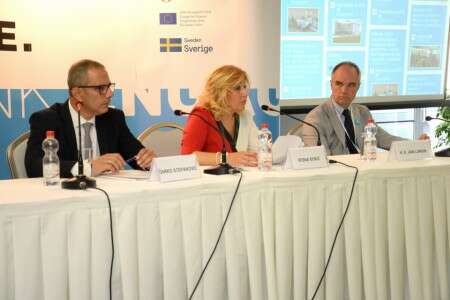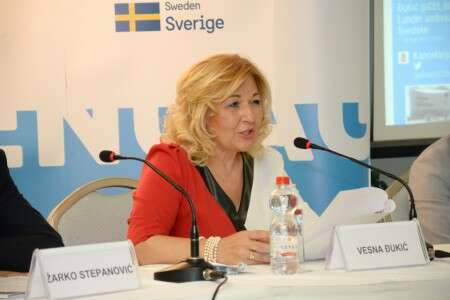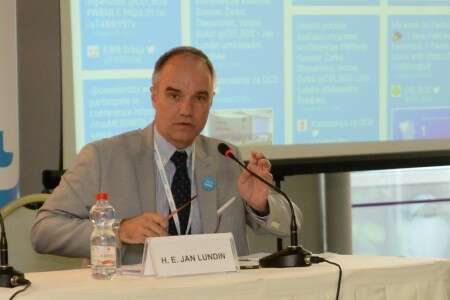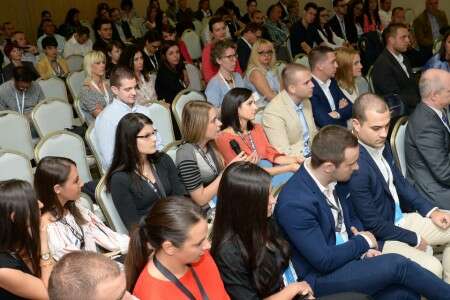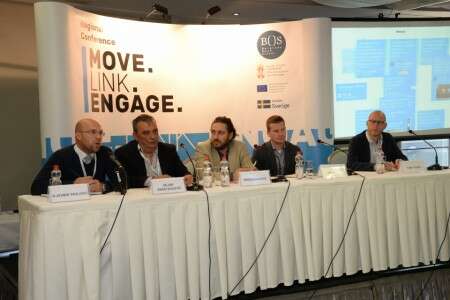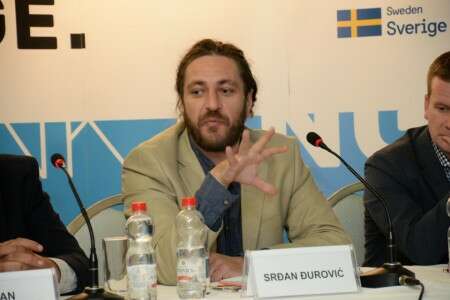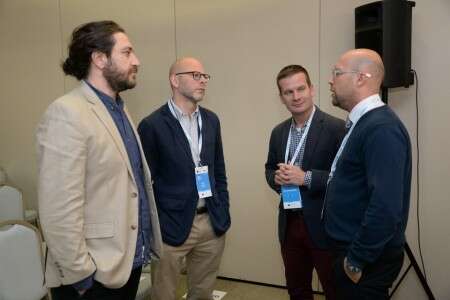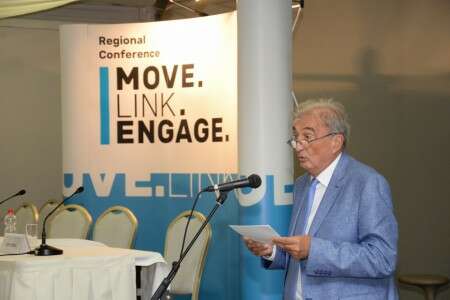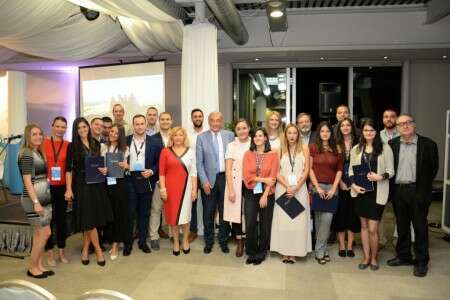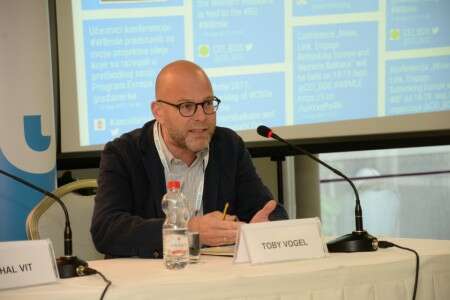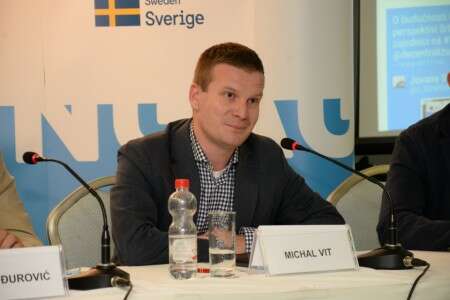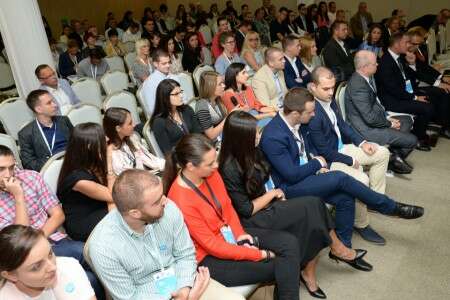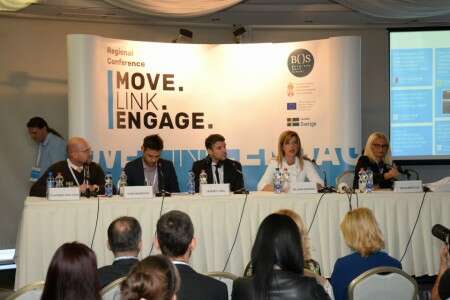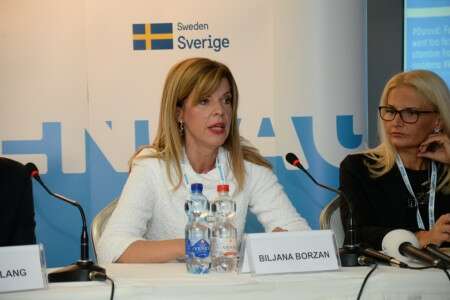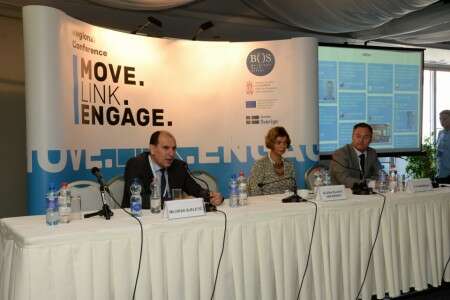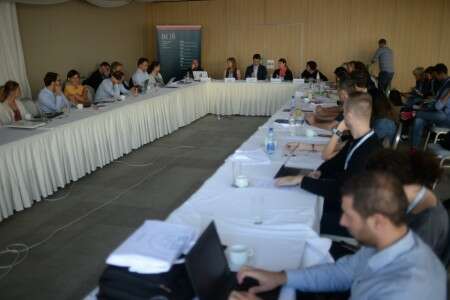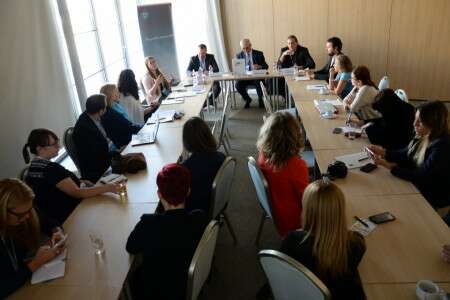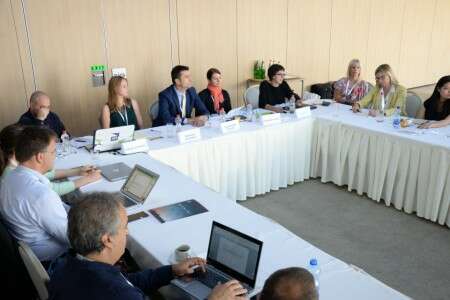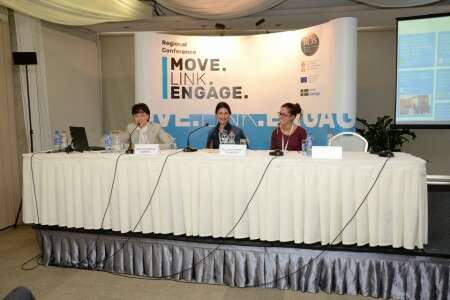The Belgrade Open School, together with the Office for Cooperation with Civil Society of Government of Serbia, organized the Third Annual Regional Conferene ’’Move. Link. Engage – Rethinking Europe and Western Balkans’, on 18th and 19th of September in Belgrade. The Conference was supported by ’Europe for Citizens’ Program and Kingdom of Sweden.
The goal of the Conference was to promote and ecnourage regional approach in solving shared problems and better cooperation among citizens and civil society in the European Integration Process. During the Opening Ceremony, Ms Vesna Đukić, General Director of Belgrade Open School, pointed out the following: ’’The future of Western Balkans is tied to the European Union and we consider this region as an equal partner in all ongoing and future dialogues and debates related both to our and the future of the EU. All the chalenges that the EU is currently facing concern all of us who are not part of the EU yet, but we want to be part of the conversation, to think it through together, to have a chance to agree or disagree with proposed solutions – to be acknowledged and recognized as an equal participant in the dialogue’.
H.E. Mr Jan Lundin, Swedish Ambassador in Serbia, opened the Conference by reminding the participants of the importance of strengthening the civil society as necessary means of strengtherng democracy and suppressing totalitarian tendencies.
Mr Žarko Stepanović, Acting Director of Government’s Office for Cooperation with Civil Society, stated that the conference was a good indicator for importance of cooperation between civil society and state institutions. ’I am convinced that this conference will show all the potential of civil society in this region and its cappacity to take part in shaping of common European future’, stated Stepanović.
The main panel of the Conference, titled ’Western Balkans in Motion: Berlin Process Aftermath’ featured prominent speakers such as Dr Tanja Miščević, Chief Negotiator for EU Accession Negotiations of Serbia, Ms Biljana Borzan, Representative of the Group of Progressive Alliance of Socialists and Democrats in the European Parliament, Mr Jeremy Lang, Second Secretary Political, Economic and Trade at the British Embassy Belgrade and Mr Igor Bandović from European Fund for the Balkans. Participants of the panel stressed out the importance of the Berlin Process, which is recognized through shifting focus towards economic and social questions and contribution to European Integration Process of all states in the region. Concrete steps, such as connecting entrepreneurs and youth in the region, were highlighted, but it was also underlined that the Berlin Process shouldn’t become a replacement for the EU Integration Process.
Participants of the session dedicated to the Civil Society Participation in European Integration Process came to the conclusion that civil society is the bridge between decision makers and the citizens, and that it is important to build alliances founded in European values and closely watch and follow the decisions that authorities make on behalf of citizens. Within the session dedicated to Youth Cooperation in Western Balkans, new funds and programs dedicated to improvement of cooperation in that area were announced, in addition to recommendations for support to sustainability of good practices, as well as possibilities for engaging more youth organizations that have no previous experience in regional projects. During the session dedicated to Energy, Climate and Environment, the participants agreed on the need for increasing share of renewable energy sources in the energy mix and taking of hidden costs of fossil fuels into account during the decision making. As for the Berlin Process so far, main observation was the limited space for civil society to present its recommendations to decision makers. However, everyone agreed on the role of civil society in the future, and importance of dedicated work on developing bottom-up approach in policy making, since that is the only method that guarantees successful implementation and development of policiees that respond to the citizens’ needs.
During the final session, participants agreed that all the main actors in Western Balkans, including civil society, need to work together on including fundamental values in the agenda of the EU Accesson Process, such as integrity, solidarity and diversity. Civil society organizations agreed that there would be no progress in the European Integration process without strong institutions and common values, and pointed out that European Integration Process should be founded in citizens’ participation in developing public policies, transparency and accountability.
The conference featured many prominent speakers such as Mr Ola Anderson, Country Manager, Development Cooperation Section Team of Embassy of Sweden in Serbia, Mr Toby Vogel from Center for European Policy Studies, Brussels, Dr Michal Vit from the ’Europeum’ think-thank organization from Czechia, Dr Natasha Wunsch from German Council for International Cooperation, Mr Gjergj Murra, Director of the Fund for the Western Balkans, Ms Željana Buntić Pejaković from ’Cenzura Plus’, Croatia, Mr Igor Milošević from the organization ’Zid’, Montenegro, Mr Dejan Anastasijević from Weekly Magazine ’Vreme’, Mr Srđan Đurović from Center for Applied European Studies, Ms Jelena Pajović Van Reenen, Executive Director of 'Our Endowment – Civil Society House' organization, as well as many experts from Serbia and abroad.
During the conference, a regional workshop was organized, dedicated to project preparation within ’Europe for Citizens’ Program, as well as official diploma awarding ceremony for 24th generation of students of the ’Future studies’ Program of Belgrade Open School.
The Conference gathered more than 200 participants, numeorus representatives of organizations from Serbia and the region, representatives of institutions and foundations, as well as representatives of the media, researches, activists and students.

